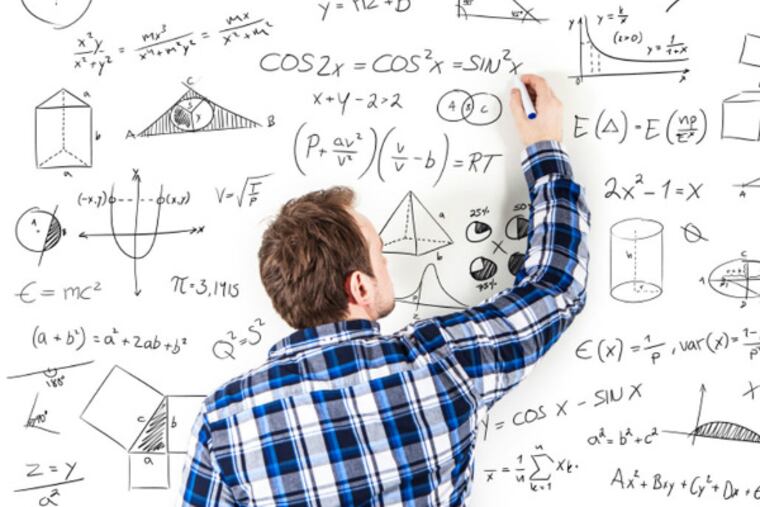On Pi Day, a serving of why we need math
Today, our Facebook feeds will be peppered with references to Pi Day, a day of celebration that has long been acknowledged by math fans and that Congress recognized in 2009.

Today, our Facebook feeds will be peppered with references to Pi Day, a day of celebration that has long been acknowledged by math fans and that Congress recognized in 2009.
Every high schooler learns that pi is the ratio of the circumference of a circle to its diameter and that its decimal expansion begins 3.14 and goes on infinitely without repeating.
Mathematicians love pi because there are many interesting facts surrounding it. Other people seem to get a kick out of dates that demonstrate patterns. Yet others enjoy any excuse to combine math puns and baked goods - one national food chain is selling pies in honor of the date.
But why do we need a pi holiday?
As a mathematician, I see that it's all good fun, but I do worry that the popularity of this Internet meme reinforces the idea that math is simply a series of trivial facts, arcane rules, and rote memorization. Mathematics is so much more than that.
Mathematics is about logical thinking and problem-solving. When Sherlock Holmes solves a mystery, he is doing math. When your child beats the next level of Angry Birds or your uncle completes a Sudoku puzzle, they are doing math. When you figure out what meals you can make with the ingredients in your pantry, or the most efficient order in which to run your errands, you are doing math.
The abstract thinking and reasoning skills that one learns in a math class help develop the skills you need to tackle all of these problems, even if you are not pulling out a pen and paper to do algebra to solve them.
Mathematics is also about understanding patterns and structure. The way that DNA molecules form a double helix, the connections among people on social networks like Facebook, and the tilings found in the art of M.C. Escher are all examples of structures that mathematicians have turned their eyes to. Understanding these structures has brought about a deeper understanding of the world and has helped lead to many advancements in our society and culture.
Mathematics is about modelling the world around us. Whether you are interested in understanding the growth of tumors, how the economy will be affected by certain policies, who is going to win the World Series, or what the weather will be next week, one of the best ways to understand phenomena we see is to formulate a mathematical model that describes it. Mathematics and statistics are languages that all of the natural and social sciences rely on when developing and testing their theories.
More importantly, what mathematics is about is always changing. History is filled with examples of math that was originally done for its own sake and only later turned out to have enormously beneficial applications. For example, the so-called imaginary numbers were originally developed to solve abstract mathematical equations but have turned out to be essential in the work of physicists and electrical engineers.
Cryptography has long relied on mathematics that was developed for other purposes. The work of Alan Turing, featured in the movie The Imitation Game, was used by the Allies to defeat the Nazis, and today the branch of mathematics known as number theory is used to send our credit card numbers securely over the Internet.
In classrooms across America, students are complaining to their math teachers that they don't understand the point of mathematics. This is because we as a society have a misperception of what mathematics is.
These students - and, in many cases, their parents - think of math as solving quadratic equations and computing areas of triangles. They don't realize that when they go home and play video games, they are not only taking advantage of innovations that mathematics has helped to bring about, but they are actually doing math themselves.
Just as there is more to studying literature than just understanding how to use commas and diagram sentences, there is far more to mathematics than numbers and equations. Thinking otherwise is like pi - it's irrational.